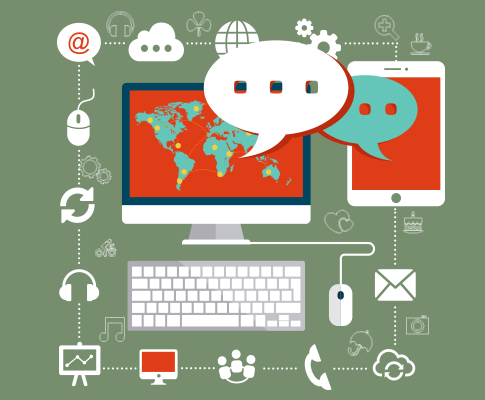Tech sector and the climate change challenge

As political and business leaders head to the World Economic Forum in Davos this week, the risks associated with climate change and a fall in biodiversity are top of the agenda. The signals are there: the weather extremes in 2019, the fires across Australia, flooding in Lincolnshire, the decline of pollinators and the millions of hectares of Amazon deforestation.
Political indecisiveness
Extreme weather, failure of climate change mitigation and human-made environmental damage top the latest Global Risk Report 2020 from the World Economic Forum. Børge Brende, president of the World Economic Forum has called on industry and political leaders to work across all sectors of society to repair and reinvigorate systems of corporation, to tackle deep-rooted risks. But there is a resurgence of isolationism and some political leaders lack the will to push through environmental policies that may be unpopular with voters or make their economy less competitive.
Then there is the hypocrisy of the major economies trying to encourage the developing world to make sustainable decisions. After all, the most successful countries have exploited the environment and natural resources without considering the future impact. What right do they have to stop developing countries from progressing?
Business drivers
Børge believes business leaders should step up to the mark, and lead, where the politicians have thus far failed. So for the CEO of one of the most successful businesses to commit to reversing the company’s carbon footprint, is significant. Detractors will argue that the tech industry is a clean industry, and Microsoft’s impact will not have a significant effect on tackling climate change.
But climate change has a direct impact on economic growth. For instance, how will agriculture be impacted by a decline in pollinators, droughts or flooding? Even financial services and insurance sectors will be impacted. Speaking prior to the start of the WEF, Peter Giger, group chief risk officer, Zurich Insurance Group, said: “If weather patterns change, how do I look at the probability of events occurring?â€
Consumer empathy
There is also a growing realisation that people are empathising with brands that are aligned with their own values. In 2018, Apple CEO, Tim Cook asked the tech sector to consider what sort of world it wanted people to live in.
Apple has made the privacy of its users a top priority. Nadella wants Microsoft to be seen as an environmental champion. No one company or country can turnaround the environmental crisis that is unfolding. But Microsoft’s carbon reduction strategy will directly impact its global supply chain and may indirectly influence other manufacturers whose businesses are heavily dependent on its technology. It’s a small step, a drop in the ocean, but global warming is something the global community must address.